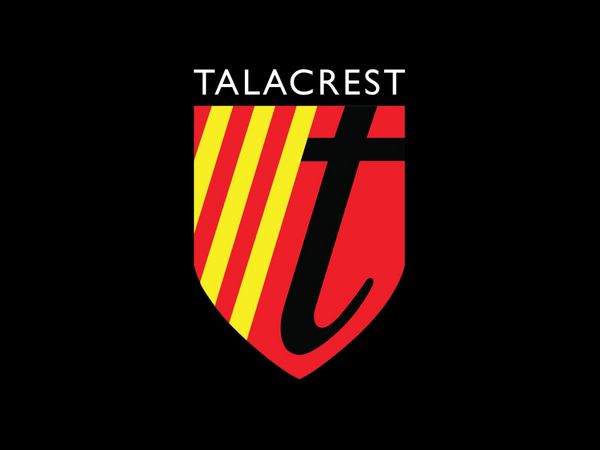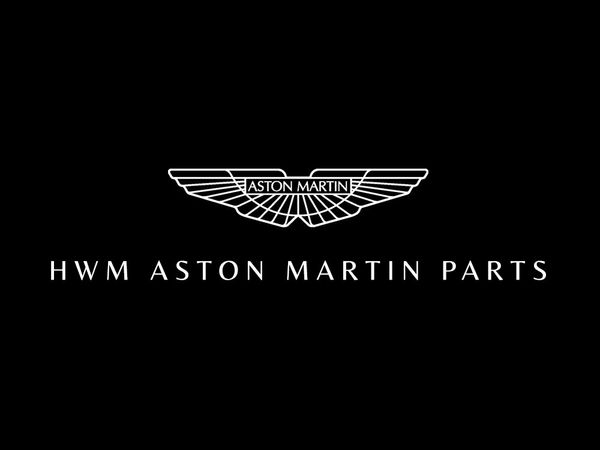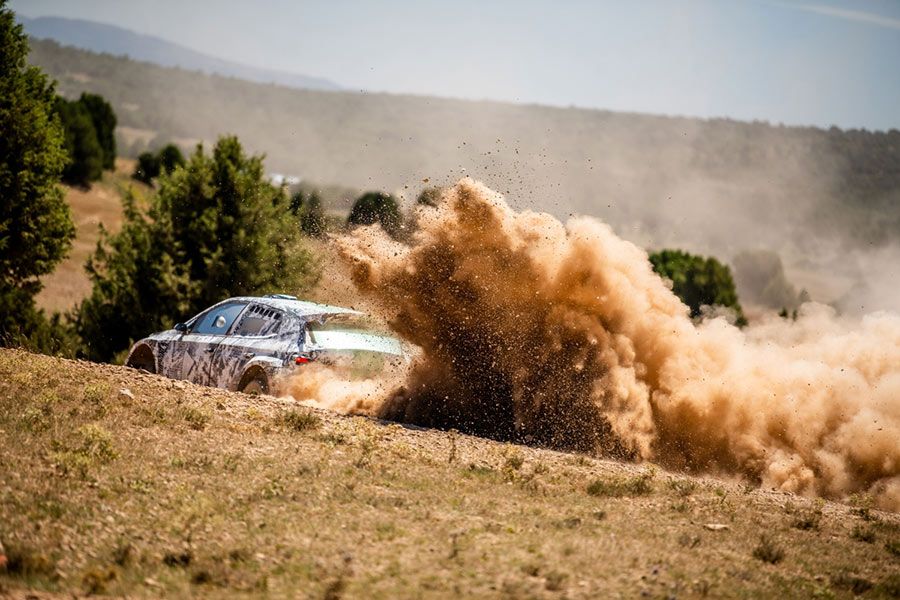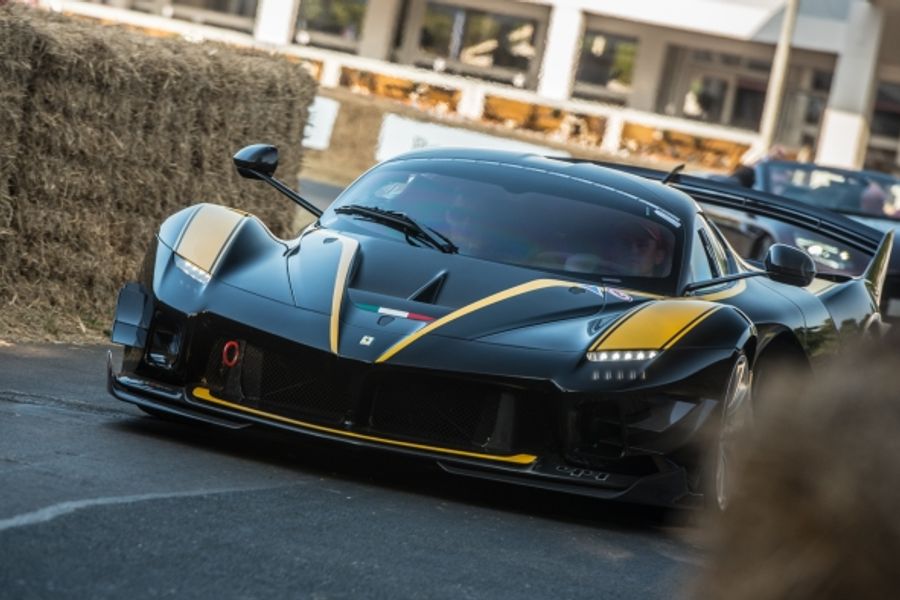makes its second-only UK appearance
Motoring enthusiasts and motor industry professionals will have a rare opportunity to see the exclusive IFR Aspid super sports car and examine its exciting new technology and design features when they visit the PistonHeads performance car show being held at the NEC in Birmingham this week (stand 19950, 8-11 January). Ignacio Fernández, who put together the team of automotive engineers that created the car, will also be on hand to explain how the Aspid manages to outperform even a World Rally Championship car as well as most supercars ... and at a fraction of the price.
The NEC venue is ideal for IFR Automotive as an engineering, design and vehicle technology company to meet industry clients as well as customers interested in the car. The PistonHeads show runs conveniently alongside the well-established Autosport International racing car exhibition. With increasing recognition that the motorsport industry has a important role to play in the development of more efficient road cars, the two shows provide a good opportunity for IFR to meet with automotive engineers seeking new ideas for the mainstream.
“The Aspid proves you can design an exclusive sports car with the ultimate dynamic performance without compromising fuel economy and everyday driveability,” says Ignacio Fernadez, who heads up the Cataluña based company he founded five years ago to help develop green automotive technologies based on light weight designs increasingly required for the mainstream car market.
“A vehicle engineering consultancy has to be able to demonstrate its ability to develop new technology and that means designing a car incorporating that technology,” says Fernandez. “So we decided to build a super sports car fit for the 21st century, using new lightweight designs to create a vehicle with exceptional acceleration, cornering and braking ability. Much of the dynamic performance we’ve achieved can be attributed to the technology we’ve incorporated into the chassis, suspension and braking systems.”
The Aspid demonstrates an impressive ability to accelerate to 100mph (160km/h) in 5.9 seconds and return to a standstill in just 3.1 seconds (0-60mph takes a mere 2.8 seconds). And with 1.6g of lateral acceleration its cornering grip is arguably even more remarkable. Much of this performance results from the installation of a supercharged 2-litre engine delivering 400bhp into a vehicle with a kerb weight of just 740kg, resulting in a very high power-to-weight ratio. The light weight also ensures excellent fuel economy, with an estimated consumption in normal driving conditions of just 59mpg (4.8 l/100km). CO2 emissions have yet to be officially measured but are estimated at 197gm/km, which is significantly less than cars of comparable or even lesser performance.
Yet far from being an ‘open-to-the elements track day special’ normally associated with such light weight, the Aspid actually comes better equipped than many significantly heavier supercars. Inside the fully enclosed climate controlled cabin, which adds a further touch of luxury with its leather trimming, there is a sophisticated electronic system featuring two highly intuitive touch screens that control everything from the sensitivity of the power steering to the integral data-logging facility. The system is highly interactive and the driver can change many parameters such as the rev limit, valve timing, power output, steering assistance, ABS, noise valve, brake balance, traction control, stability control, pitch, roll, yaw and ride height as well as damping characteristics. And with a touch of the screen, it’s simplicity itself to restore the factory settings.
With a design brief intended to maximise active and passive safety, it’s also believed to be the only car in the world to meet FIA safety requirements as standard, without any additional modifications, as well as European road car homologation requirements. This makes the car as easy to use on the race track as simply donning a safety helmet. And immediately following an exhilarating run on the track it can be easily driven in a relaxed fashion through the town or on a long distance grand tour.
The basic price of the 400bhp Aspid Supersport model, excluding taxes, is €107,000; approximately one-third the price of a second-hand WRC car and significantly more driver-friendly. Supercars approaching the same level of performance are substantially more expensive. The price of the 270bhp naturally aspirated Aspid sport model is €77,000.
To help protect the investment of its customers the Aspid not only offers a high build quality and exceptional reliability, but to further maintain its residual value the car has been designed to be easily rebuilt. If returned to the factory or approved dealer for a rebuild prior to a second-hand sale, IFR Automotive will restore the car as new and provide a further 1-year guarantee. The company can also assist in the second-hand sale of an Aspid by introducing its owner to its sales network and other customers on its books interested in acquiring pre-owned models.
“In addition to the car’s exclusivity and tailoring to individual customer requirements, we believe this re-build policy will help maintain a strong second-hand market for the Aspid,” says Fernández. “The sophisticated electronic systems will also enable customers to have their car diagnosed remotely from the factory wherever they are in the world, so we can advise on any required maintenance.”
“The new car prices offer the best possible value for high performance racing, particularly given the advanced technology, F1 type suspension (with inboard dampers), high power-to-weight ratio, inclusion of professional data logging equipment and communications capability, and high overall safety specification. And the low weight intrinsically means less forces being imposed on any part of the car, so there is less wear and tear for example on the tyres, bearings and brakes. This also makes the maintenance and ownership of the car more affordable.”
“Regarding the level of customer interest, we are currently receiving enquiries at the rate of about one a week, which exactly matches our current build capability and is a good sign that we can meet our target of 40-50 cars in the first year.”
Although orders are now being taken and customer cars are now under construction, the first deliveries are not until the summer when the final UK price on the road (including VAT, delivery charge, number plates, VED and first registration fee) will be determined.



























